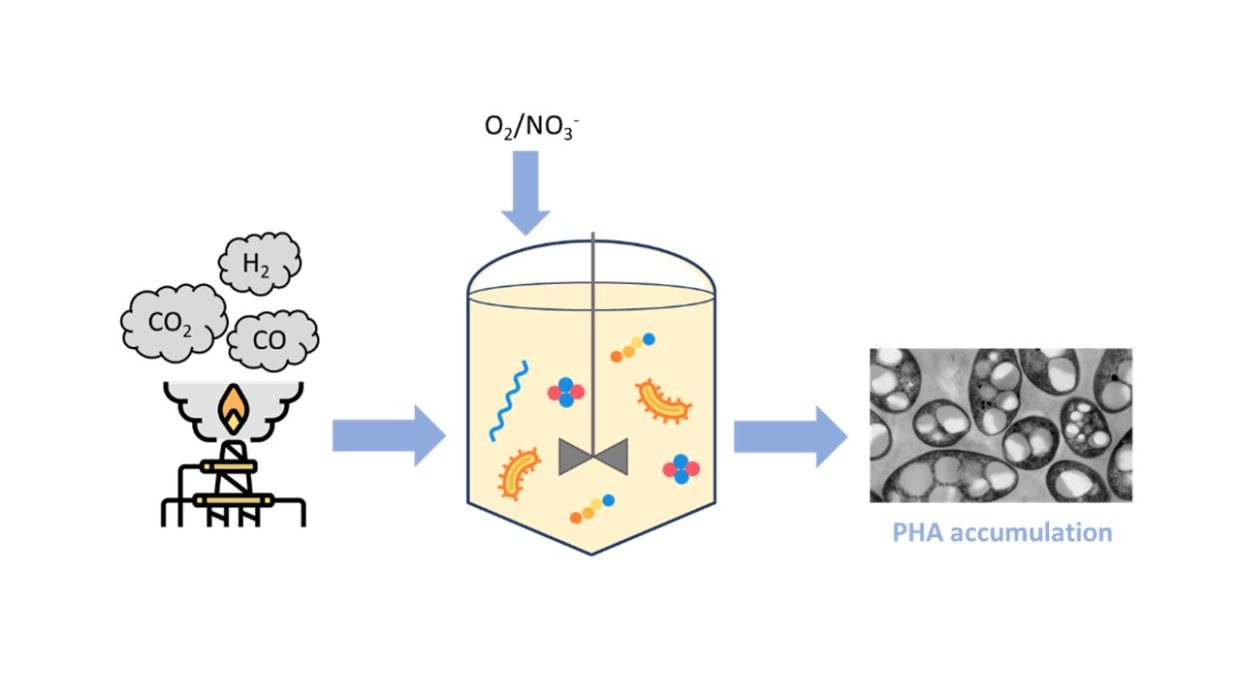CO2-ALPHA
Autotrophic vaLorization for PHA production

-
Grant agreement ID: 2019 LLAV 00067
-
Total project budget: 20.000,00 €
-
Start Date: 23/07/2020
End Date: 22/04/2021
Project Summary:
CO2-based polymers production is a promising application due to the promotion of the CO2 utilization for bioplastics that can substitute petroleum as raw material. Polyhydroxyalkanoates (PHA) are biological polyesters synthesized by a variety of microorganisms as an intracellular storage from renewable resources. Hence, the CO2-ALPHA project aims the production of PHA from CO2 and the minimization of its emissions as the main greenhouse gas. This process could entail a reduction in the carbon footprint associated to the PHA production, which will increase the environmental sustainability of the industrial bioplastics production process.
Our role in the project:
The main objective of this project is the autotrophic production of PHA from CO2 and H2 as carbon and electron donors avoiding the use of O2. To achieve this main goal, BETA Technological Center is responsible for the development of a novel system that can use nitrate as electron acceptor instead of O2 to reduce the riskiness of the process. In addition, as pure cultures require a more exhaustive control of the process, Beta Tech Center is responsible for the study of the PHA accumulation under anoxic conditions with open-mixed microbial populations.
Project funded by the European Union through the European Regional Development Fund (FEDER)
![]()
![]()
